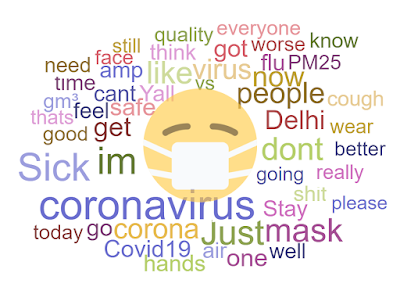Up to now people worldwide and here at home have largely cooperated with government shutdowns, but things are changing. The economic cost has been unprecedented. More people have lost their jobs than did in the Great Depression. Small businesses people spent their lifetimes building have been severely hurt and some have been destroyed. Trillions in stock values have gone “Poof.” Almost every American life has been disrupted in some way. Backlash has begun around the country with demonstrations at various statehouses where Democrat governors ordered the strictest, most-extended shutdowns.
As we’re learning more about this virus, some are beginning to question whether it was all necessary. Sweden, for example, has allowed businesses and most schools to remain open and left it up to individual citizens how to respond. They’ve come under criticism from across Europe including from neighboring Norway, a very similar country in nearly every way, which shut down much as America has. Sweden wagered that most citizens would eventually get the virus anyway and it would achieve herd immunity more quickly while other countries extended their vulnerability.
By some calculations, Sweden has had more deaths than Norway per capita, but Covid-19 mortality statistics are worked out differently across the globe. Here in America, for example, deaths of people who never tested positive for Covid-19 are nonetheless counted as victims of the virus. Those who did test positive but who may have died of more serious co-morbidities are still counted as victims of Covid-19. As I wrote in last week’s column, our shutdown was largely prompted by a virus model by Neil Ferguson out of Oxford University that has since proven way overblown.
We don’t yet know if Sweden’s bet will pay off. While its death rate is twice Denmark’s, it’s only half of France’s according to Vanity Fair last Friday. An Israeli study published last week indicates that the virus goes through all human populations in eight weeks regardless of whether a country shuts down or not. President Trump’s Covid-19 Task Force pats itself on the back for saving thousands of lives with its shutdown policies, but are they correct? If the Israeli model proves true, what’s the likelihood that Trump would ever admit he was wrong? In an election year?

 |
| Neil Ferguson caused panic |

Even less likely to admit it would be mainstream media. All through March and April, they’ve done little but spread fear and criticize Trump for not shutting down early enough or strictly enough. Some Libertarians have suggested that neither federal nor state governments have legitimate authority to shut down the country and lawsuits have been filed to challenge them. We have so far used computer models and algorithms to predict the path Covid-19 would take, but now we’re seeing evidence that many models were flawed.
No major media figure nor political leader has dared question whether this has all been necessary. Did total shutdown increase the likelihood of a second viral wave in the fall? We don’t know. Will Sweden’s milder approach decrease that likelihood? We don’t know that either. Political leaders with their medical advisors have been forced to make decisions based on incomplete data. To what degree will they be held responsible if subsequent data prove them wrong? We don’t know, but it’s a safe bet that political partisans will point fingers if they believe it will help them electorally.
No major media figure nor political leader has dared question whether this has all been necessary. Did total shutdown increase the likelihood of a second viral wave in the fall? We don’t know. Will Sweden’s milder approach decrease that likelihood? We don’t know that either. Political leaders with their medical advisors have been forced to make decisions based on incomplete data. To what degree will they be held responsible if subsequent data prove them wrong? We don’t know, but it’s a safe bet that political partisans will point fingers if they believe it will help them electorally.
As testing for both the virus and antibodies to it are administered more widely, we’re learning unexpected things. So far — and we still have a long way to go — we’re learning that many more of us have been exposed to Covid-19 than expected. It looks like upwards of 30% of Americans may have antibodies but few if any symptoms. Would this be good news or bad news?
Usually I watch Fox’s Bret Baier deliver the news at 6:00 PM weeknights, but he’s often preempted of late by President Trump and his virus team. Trump hogs the podium and repeats things so much that I’ve been switching over to CBS, ABC, and NBC. What strikes me most about network anchors there is their melodrama, especially when reporting on the virus, and wonder if it’s genuine or affected. I suspect the latter.
Swedish leaders and their medical advisors have withstood withering criticism for their outlier policies both from within Sweden and from across the globe. Whatever the outcome, they won’t avoid repercussions. It might be continued condemnation, but it might ultimately be praise. We don’t know yet. How much criticism will this smalltime columnist receive for even suggesting that American politicians and media may have overreacted at enormous cost to our economy and our day-to-day lives? We don’t know, but I’m sure I’ll find out very soon.



















































